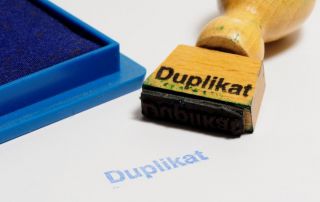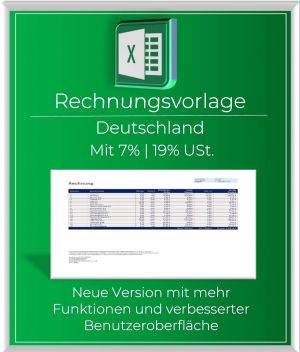Das Herzstück der KI-Regulierung: Was ist das neue “AI-Büro” der EU?
The European Union has set a global milestone with its AI Act. To bring this comprehensive regulatory framework to life and monitor compliance, the European Commission has created a new, central authority: the European AI Office. This institution will be the linchpin for the implementation and enforcement of AI rules in Europe and is intended to ensure that the EU plays a leading role in the development of trustworthy artificial intelligence.

What is the main task of the AI office?
The AI Office is the central supervisory and enforcement body for the AI Act. It was established by the European Commission in January 2024 and is located within the Directorate-General for Communications Networks, Content and Technology (DG CNECT).
Its overarching objective is twofold:
- Enforcement: To ensure that the rules of the AI Act, particularly for the most powerful AI models, are applied and respected consistently across the Union.
- Promotion: To foster the development and use of trustworthy AI in Europe to strengthen innovation and competitiveness while protecting citizens’ fundamental rights.
The Office is intended to serve as a global reference center for a human-centered approach to AI.
Key tasks at a glance
The AI Office’s responsibilities are wide-ranging and extend far beyond mere oversight.
Oversight of Advanced AI Models: Its primary task is the direct oversight of general-purpose AI models (GPAIs), particularly those classified as “systemic risk” (such as very large language models). The Office will monitor their compliance with regulations, initiate investigations into violations, and can impose sanctions.
Coordination and Harmonization: The Office serves as a liaison between the 27 EU Member States. It will coordinate national supervisory authorities to ensure a consistent interpretation and application of AI legislation across the EU. It will also support joint investigations in cross-border cases.
Development of Guidelines: To provide clarity for companies and developers, the AI Office will develop detailed guidelines, implementing regulations, and standards for the practical application of the law.
Promoting Innovation: The Office will not only regulate but also foster an innovative ecosystem for AI “Made in Europe.” This includes supporting so-called “AI Factories” and promoting research and development in the field of trustworthy AI.
Support for SMEs: Small and medium-sized enterprises (SMEs) will receive targeted support. The Office will provide information platforms and resources to facilitate their compliance with the complex regulations.
International Representation: The AI Office will represent the EU on the global stage and promote the European approach to trustworthy AI in international bodies and with partner countries.
How is the office structured?
To meet these diverse tasks, the AI office is divided into several specialized units and will be staffed with approximately 140 experts, including technologists, lawyers, and economists.
… The structure includes, among other things:
- Regulation and Compliance Unit: The core team for monitoring and enforcing the rules, particularly for GPAI models.
- AI Safety Unit: Focuses on identifying and mitigating risks posed by AI systems.
- Excellence in AI and Robotics Unit: Responsible for promoting research, development, and the dissemination of AI in the EU.
- AI for Societal Benefit Unit: Focuses on the positive applications of AI, for example, in the health or environmental sectors.
The office will also work closely with the European AI Committee (in which the Member States are represented), a scientific panel of independent experts, and an advisory forum (which includes civil society and industry).
Beliebte Beiträge
Warum dein Excel-Kurs Zeitverschwendung ist – was du wirklich lernen solltest!
Hand aufs Herz: Wann hast du zuletzt eine komplexe Excel-Formel ohne Googeln getippt? Eben. KI schreibt heute den Code für dich. Erfahre, warum klassische Excel-Trainings veraltet sind und welche 3 modernen Skills deinen Marktwert im Büro jetzt massiv steigern.
Microsoft Loop in Teams: The revolution of your notes?
What exactly are these Loop components in Microsoft Teams? We'll show you how these "living mini-documents" can accelerate your teamwork. From dynamic agendas to shared, real-time checklists – discover practical use cases for your everyday work.
Career booster 2026: These Microsoft Office skills will take you further!
A new year, new career opportunities! But which Office skills will really be in demand in 2026? "Skilled use" is no longer enough. We'll show you today's must-haves – like advanced Excel, using AI in the office, and relevant certifications for your resume.
Excel Tutorial: How to quickly and safely remove duplicates
Duplicate entries in your Excel lists? This distorts your data. Our tutorial shows you, using a practical example, how to clean up your data in seconds with the "Remove Duplicates" function – whether you want to delete identical rows or just values in a column.
Dynamic ranges in Excel: OFFSET function
The OFFSET function in Excel creates a flexible reference. Instead of fixing =SUM(B5:B7), the function finds the range itself, e.g., for the "last 3 months". Ideal for dynamic charts or dashboards that grow automatically.
Mastering the INDIRECT function in Excel
The INDIRECT function in Excel converts text into a real reference. Instead of manually typing =January!E10, use =INDIRECT(A2 & "!E10"), where A2 contains 'January'. This allows you to easily create dynamic summaries for multiple worksheets.

































